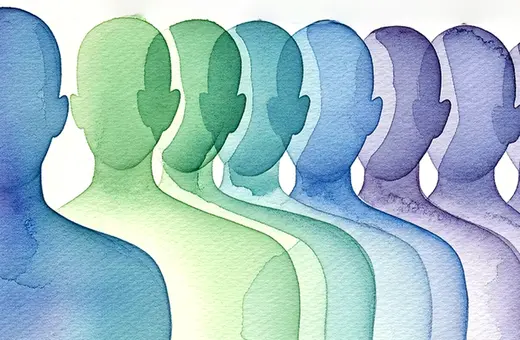Uploading minds to computers isn’t just technically impossible—the whole idea rests on a deep misconception of consciousness and our place in reality. So argues William Egginton, whose recent book explores the relationships between the philosophies of Kant, Heisenberg and Borges. Drawing a parallel between minds and spacetime singularities inside black holes, he argues that to try to know such things involves trying to go beyond mere appearances to reality as it is in itself—a futile project, he claims. And if minds cannot be truly known, they certainly can’t be copied or uploaded to computers. Futurists like Ray Kurzweil and Dmitry Itskov, who aim for cybernetic immortality, are chasing a metaphysical mirage.
Uploading minds
Philosophers often talk about consciousness as if it were a problem. Better yet, two problems: a hard one and an easy one. The so-called easy one (which the psychologist Steven Pinker has joked is about as easy as getting to Mars) merely involves explaining how the brain evolved to perform the complex tasks we associate with human intelligence, such as judging, deciding, communicating decisions through language, and acting upon them. The hard problem, in contrast, refers to the goal of explaining how the brain produces the experiences we associate with every aspect of being alive: the sensations of colors, sounds, flavors, or the experience of being someone who exists here and now and needs to decide about what to do or where to go next. Some philosophers have thrown up their hands in frustration at just how hard a task explaining all that is; others have just thrown the task away, denying there even is a problem in the first place. For those who have decided to take it seriously, a curious genre of inquiry has taken root, in which horror, science fiction, and fantasy become the staging ground for thought experiments about what in fact accounts for human experience.
___
A similar paradox emerges when we treat consciousness as an object of knowledge, by which I simply mean something that can be studied and understood externally.
___
One common trope in these musings is that my first-person experience of the world might be something transferable from my body. Of course, this idea is neither new nor limited to philosophers using science fiction to speculate about consciousness. The same conceit animates ancient and current religious beliefs about the immortality of the soul and reincarnation. In Plato’s dialogue Phaedo, we learn of Socrates’s belief that his own soul will survive his death. A more recent manifestation of this trope imagines consciousness as pure information, something one could code into software and upload onto a mainframe prior to death, thus extending life indefinitely. Indeed, the futurist Ray Kurzweil, who popularized the use of the word “singularity” for the ever-approaching moment when humans and machines merge, is reportedly planning to upload his memories as soon as such an interface becomes possible. He already created an AI version of his father, which he claims, despite its relatively rudimentary form, allows him to experience a kind of relationship with him beyond the grave. But thinking of the first-person experience of existence as something we could ever fully explain, reproduce, gain access to, or transfer between bodies entails a singularity in a very different sense from the one Kurzweil is counting on.
The unreality of space and time






















Join the conversation